As a member of Vetcetera, you’ll get access to our RACE-approved continuing education video and whitepaper courses. Each course category consists of stand-alone RACE-approved video and whitepaper courses. Complete the courses when and where it is convenient for you and discover topics taught by veterinary experts.
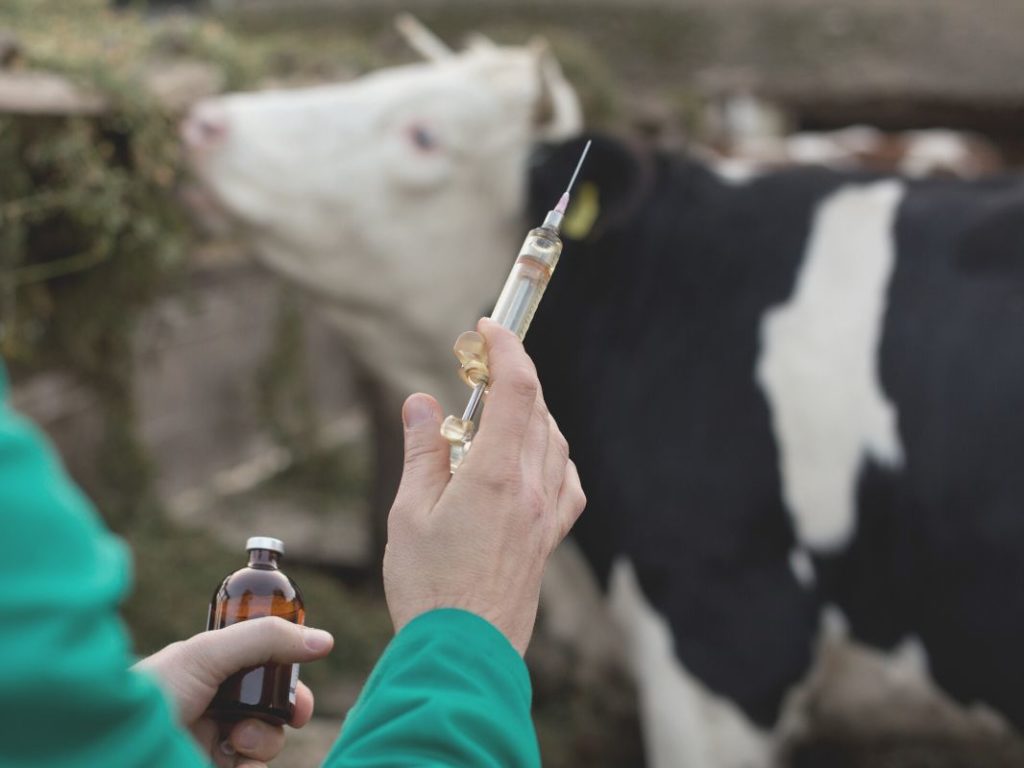
Presenters: Heidi Reuss-Lamky, LVT, VTS (Anesthesia & Analgesia), (Surgery) / April Bays CVT, VTS (ECC), VCC / Jessica Rush, DVM, MS, Diplomate ACT / Kara Burns, MS, MEd, LVT, VTS (Nutrition) / Stephen Nino Cital RVT, RLAT, SRA, VTS- LAM / Tasha McNerney, BS, CVT, CCVP, VTS (Anesthesia/Analgesia)
Total Credit Hours: 13 (13 Courses)
Each of these courses has been approved for continuing education credit in jurisdictions that recognize RACE approval. Additionally, Vetcetera is approved as a sponsor of continuing education for veterinarians and veterinary technicians in the state of New York.
Anesthesia/Analgesia/Pain Management
Learn how to administer and monitor anesthesia to veterinary patients. Review pain management techniques, including local anesthesia protocols, pain medications, etc.for procedures, osteoarthritis and more to aid in keeping your patients as comfortable as possible.
Anesthesia/Analgesia/Pain Management Courses
Anesthesia Mistakes Awareness
Heidi Reuss-Lamky reviews common anesthesia mistakes that can affect veterinary patients. She discusses various areas of concern and provides instruction on utilizing surgical checklists to avoid errors.
Understanding Capnography–It’s Breathtaking!
Heidi Reuss-Lamky reviews capnography and how it’s utilized in anesthesia. She discusses equipment, carbon dioxide physiology, and capnogram interpretation.
Dental Nerve Blocks for Technicians
Heidi Reuss – Lamky reviews anesthesia block techniques for dental and mouth procedures
The Pain Stops Here: Locoregional Anesthetic Techniques
Heidi Reuss-Lamky reviews locoregional anesthetic techniques
Anesthesia in the Critical Patient
April Bays covers all the basics to advanced monitoring techniques and their applications including pulse oximetry, capnography, blood pressure monitoring (invasive and non), electrocardiogram, and oxygenation/ventilation options which are skills that will carry technicians through critical care monitoring and prepare them to utilize our commonly used analgesics and anesthetics as safely as possible.
Plus 8 other Anesthesia/Analgesia/Pain Management courses!
- Local and Regional Anesthesia in Food Animals
- A Proactive Approach to Canine Osteoarthritis – Boehringer Ingelheim Sponsored
- Maintaining Blood Pressure Under Anesthesia
- What’s new with and review about NSAIDS
- Pain Management in Exotic and Lab Animal Species
- Effective Anesthesia Monitoring – Part 1
- Effective Anesthesia Monitoring – Part 2
- Effective Anesthesia Monitoring – Part 3: Capnography Overview

Presenters: Sagi Denenberg DVM, MRCVS / Valli Parthasarathy, DVM, DACVB / Amy L. Pike, DVM, DACVB / Kerry Rolph, BVM&S, CertVC, PhD, FANZCVS (Feline Chapter), DipECVIM-Ca, FRCVS / Stephen Cital RVT, RLAT, SRA, VTS- LAM
Total Credit Hours: 10.75 (10 Courses)
Each of these courses has been approved for continuing education credit in jurisdictions that recognize RACE approval. Additionally, Vetcetera is approved as a sponsor of continuing education for veterinarians and veterinary technicians in the state of New York.
Behavior
Learn how to recognize and manage some of the most common behavioral problems encountered in private practice: separation anxiety, human-directed aggression, feline house soiling, and puppy and kitten behavioral concerns. You’ll get tips for behavioral modification, medication options, and client communication, as well as information on when to refer patients to a specialist.
Behavior Courses
Cognitive Dysfunction Syndrome in Cats
Review the diagnosis and management of feline cognitive dysfunction syndrome.
Feline Housesoiling
Provides the behavioral causes of feline house soiling including treatment options and medical rule-outs.
Human-directed Aggression in Dogs
Explore the diagnosis and management of human-directed aggression in dogs and provides client communication tips for these challenging cases.
Managing Anxiety and Fear in the Veterinary Practice
Review recognizing and managing anxiety and fear in dogs and cats in a clinic setting to benefit the veterinary team, patients, and clients.
Puppy and Kitten Behavioral Development and Problem Behavior Prevention
Review puppy and kitten behavioral stages and body language. Review the most common behavioral problems in puppies and kittens and useful strategies for preventing them including tips for healthy socialization and choosing a trainer.
Plus 5 other Behavior courses!
- Separation Anxiety
- Separation Anxiety in Dogs and Cats in a Post-Covid World
- Feline Inappropriate Urination: Forget the Box and Focus on the Felines
- Medical Causes and Medication Intervention for Aggression in Dogs
- Animal Boredom, Emotion and Pain: Making a little sense of the science for our patients

Presenters: April Bays, CVT, VTS (ECC), VCC
Total Credit Hours: 4 (4 Courses)
Each of these courses has been approved for continuing education credit in jurisdictions that recognize RACE approval. Additionally, Vetcetera is approved as a sponsor of continuing education for veterinarians and veterinary technicians in the state of New York.
Cannabis
As veterinary professionals we have a responsibility to provide harm reduction education to our clients regarding cannabis products and use. Stay up to date on the current research, special considerations, drug interactions and recommended safety protocols.
Cannabis Courses
Veterinary Cannabis Therapy
This lecture will bring you up to speed on the current research of the endocannabinoid systems of small animal species.
The Science of Cannabis Medicine
This lecture will cover the newest research and current applications in general cannabis medicine.
Introduction to Veterinary Cannabis Therapy
This lecture will bring you up to speed on the current research of the endocannabinoid systems of small animal species.
How to Develop a Cannabis Plan
This lecture will include instruction on how to interpret a Certificate of Analysis. Attendees will learn how to evaluate all the factors in plant testing including cannabinoids and terpenes, as well as pesticides, heavy metals, etc. They will be able to identify quality, safe products with this education and apply it to the latest dosing guidelines to create a cannabis plan.
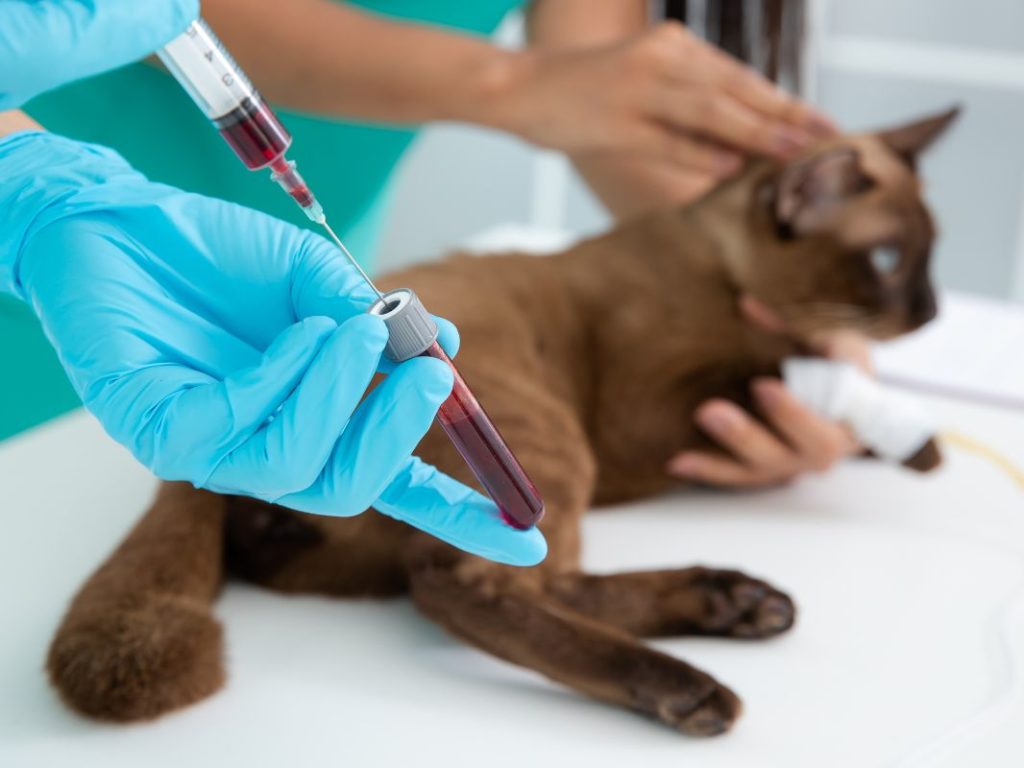
Presenters: Sarah M. Cavanaugh, DVM, MSc, DACVIM /
Kerry Rolph, BVM&S, CertVC, PhD, FANZCVS, DipECVIM-Ca, FRCVS / Rebecca Saunders, DVM, MS, DACVIM (Cardiology)
Total Credit Hours: 7.5 (7 Courses)
Each of these courses has been approved for continuing education credit in jurisdictions that recognize RACE approval. Additionally, Vetcetera is approved as a sponsor of continuing education for veterinarians and veterinary technicians in the state of New York.
Cardiology
Diagnosis to management and everything in between related to cardiac disease in small animal general practice. You’ll review common differential diagnoses and recommended diagnostic steps for heart murmurs, gallops, and dysrhythmias. Learn about how to stabilize cardiac patients in emergency situations, when to refer them for specialty treatment, and how to best communicate with their owners as you manage these cases.
Cardiology Courses
Cardiac Emergencies in Dogs
Review the three common causes of canine cardiac emergencies: congestive heart failure, arrhythmias, and pericardial effusion. We’ll review causes, diagnosis, treatment, and follow-up for each, with attention to effective and compassionate client communication throughout.
Heart Murmur Review: Next Steps & Conversations with Pet Parents
Explore heart murmurs in puppies and adult dogs. We’ll discuss murmur grades, innocent/non-pathologic murmurs, and a flow chart for the diagnostic work-up; multiple case studies will be reviewed.
Examination of the Dyspneic Cat
Examination of a dyspneic cat can be challenging and can lead to decompensation. Learn how to minimize stress and perform a full evaluation of the cardiorespiratory system, while identifying differentials and working toward a diagnosis in these challenging cases.
Feline Murmurs, Gallops, & Dysrhythmias: When Should I Investigate/Refer?
We’ll discuss different forms of auscultable cardiac abnormalities, addresses their significance, and gives some practical guidance on workup. We’ll also provide client communication tips and advice on when to refer these cases.
Stop the Clot! Diagnosis, Treatment & Prevention of Feline Thromboembolic Disease
This course reviews hemostasis and feline thromboembolic disease. Diagnostics, reperfusion injury, treatment, and prognosis will be discussed.
Plus 2 other Cardiology courses!
- Pulmonary Hypertension: A Cardiopulmonary Clinical Enigma
- Heart Healthy: Diets & Supplements in the Canine Patient

Presenter: April Bays CVT, VTS (ECC), VCC / Meg Harrington, BS, CVT / Barbie Papajeski, MS, LVT, RLATG, VTS (Clinical Pathology)
Total Credit Hours: 8 (8 Courses)
Each of these courses has been approved for continuing education credit in jurisdictions that recognize RACE approval. Additionally, Vetcetera is approved as a sponsor of continuing education for veterinarians and veterinary technicians in the state of New York.
Clinical Pathology
Learn the basics of clinical pathology, including blood smear analysis. Review different poikilocytes and the conditions associated with them.
Clinical Pathology Courses
Blood Smear Evaluation: The Basics
Review of blood smear evaluation basics. A discussion of techniques to improve efficiency and common red blood cell, white blood cell, and platelet observations.
Large Animal Necropsies: Techniques & Sample Collection for Veterinary Technicians
An overview of the Veterinary Technicians’ role in performing necropsies and proper sample collection.
Cytology Part 1: Sample Collection, Processing, and Slide Preparation
This session will discuss sample collection and processing of samples for cytological evaluation including tissues, lesions, fluid samples, washes, and mass aspirates. Preliminary testing and slide preparation techniques will be discussed along with packaging samples for send outs.
Cytology Part 2: Microscopic Identification of Structures and Cells in Cytology Samples
This session will cover microscopic identification and descriptions of structures and cells in cytology samples along with cells and structures found in mass aspirates, effusions, urogenital samples, ear and skin samples, and washes will be covered.
Hematology Part 1: Preparing Samples and Verifying Automated Complete Blood Counts
This session will cover blood collection, preparation and testing for a complete blood count. Slide preparation, packed cell volume, and automated analyzers will be covered during this session. Common interferences and validation procedures will be included.
Plus 1 other Clinical Pathology course!
- Hematology Part 2: Microscopic blood cell identification
- Urinalysis – Sample Collection, Gross and Chemical Evaluation, and Microscopic Structure Identification
- Blood Chemistries: Sample Collection, Handling, and Testing Considerations

Presenter: Diane Carle, DVM, DAVDC / Brook Niemiec, DVM, DAVDC, DEVDC, FAVD / Mary L. Berg, BS, LATG, RVT, VTS (Dentistry)
Total Credit Hours: 7 (7 Courses)
Each of these courses has been approved for continuing education credit in jurisdictions that recognize RACE approval. Additionally, Vetcetera is approved as a sponsor of continuing education for veterinarians and veterinary technicians in the state of New York.
Dentistry
Common dentistry needs in general practice. Review radiographic technique, dental anatomy, and normal and abnormal findings and learn about the diagnosis and treatment of periodontal disease, feline tooth resorption, and feline stomatitis, including recommendations for when to refer cases to a veterinary dentist. Receive helpful tips for successful client communication.
Dentistry Courses
Basic Dental Extractions in Dogs and Cats
Review basic dental extractions in dogs and cats, including equipment, regional anesthesia, and techniques.
Effective Communication in Veterinary Dentistry
Get tips for communicating effectively with owners in the context of veterinary dentistry. We’ll address team-based communication, owner education methods, and addressing the fear of anesthesia.
Dental Radiograph Interpretation
Review dental anatomy, correct radiographic technique, and common mistakes and how to correct them. We’ll discusses radiographic signs of endodontic disease, periodontal disease, and tooth resorption, with attention to both significant and insignificant findings and present multiple cases.
Periodontal Disease in Dogs and Cats
Receive a brief anatomy refresher and then explore etiology, predisposing factors, and consequences. We’ll share a step-by-step diagnostic approach and treatment options available in general practice and referral facilities.
Surgical Dental Extractions and Complications in Dogs and Cats
Dr. Brook Niemiec discusses surgical dental extractions in dogs and cats. He reviews flap creation, alveolar bone removal, and sectioning of teeth. He then discusses closure techniques and complications, including oronasal fistulas, retained root tips, and iatrogenic fractures.
Plus 2 other Dentistry courses!
- Understanding Feline Tooth Resorption and Stomatitis
- The Complete Plan for the Periodontal Patient – COHAT
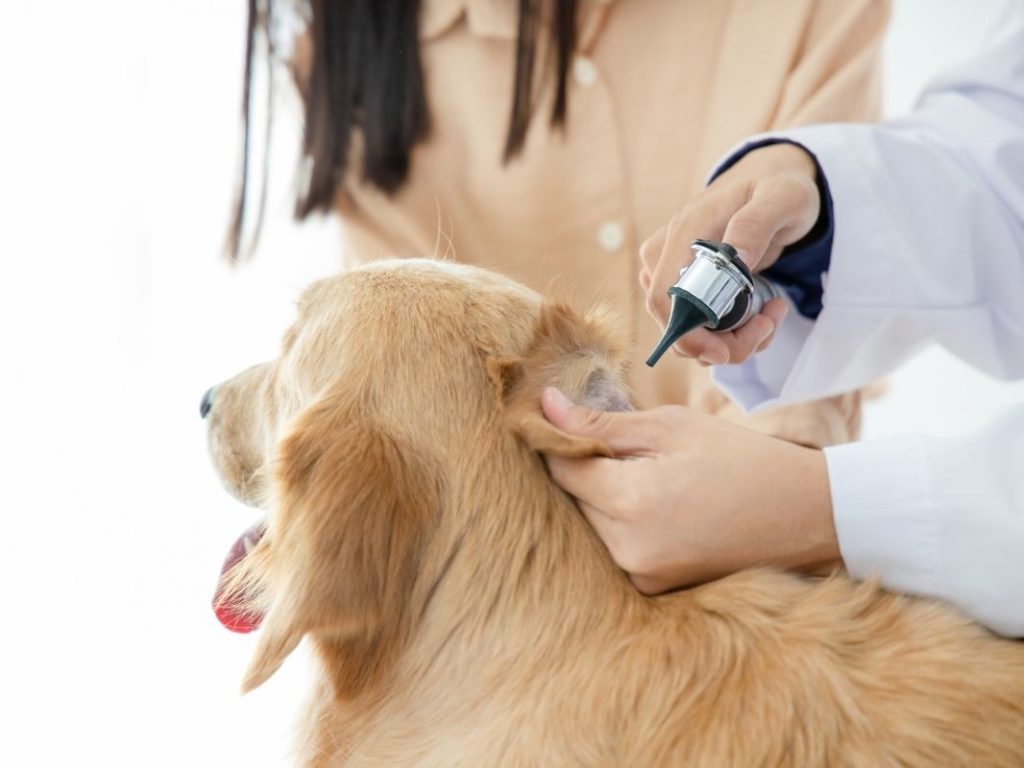
Presenter: Jennifer Bentley, DVM, DACVD / Amelia White, DVM, MS, DACVD / Susan L. White DVM, MS, DACVIM
Total Credit Hours: 6 (6 Courses)
Each of these courses has been approved for continuing education credit in jurisdictions that recognize RACE approval. Additionally, Vetcetera is approved as a sponsor of continuing education for veterinarians and veterinary technicians in the state of New York.
Dermatology
Everything you need to know for the diagnostic workup and treatment of an allergic patient in small animal general practice. Review diagnostic techniques, differential diagnoses, and medical therapies, as well as tips on client communication and when to consider referring patients to a specialty practice for more advanced diagnostics and treatment.
Dermatology Courses
The Initial Approach to the Allergic Patient
A step-by-step approach to allergic patients, including tips for client communication and common treatment options.
Dermatology Diagnostics
Review common diagnostic procedures, such as cytology and skin scraping, and appropriate antibiotic options for dermatology patients.
Allergies (Flea, Food, and Contact)
Learn how to diagnosis and treat flea, food, and contact allergies and get tips for successful client communication.
Atopic Dermatitis
Review the diagnosis and treatment of atopic dermatitis and get tips for successful client communication.
Tips for Managing Canine Otitis Externa
Dr. Amelia White focuses on the most common type of otitis, otitis externa relating to the primary causes of otitis externa, and developing a streamlined diagnostic and treatment approach. communication.
Plus 1 other Dermatology course!
- Enhancement of equine wound healing using regenerative nanoparticle technology
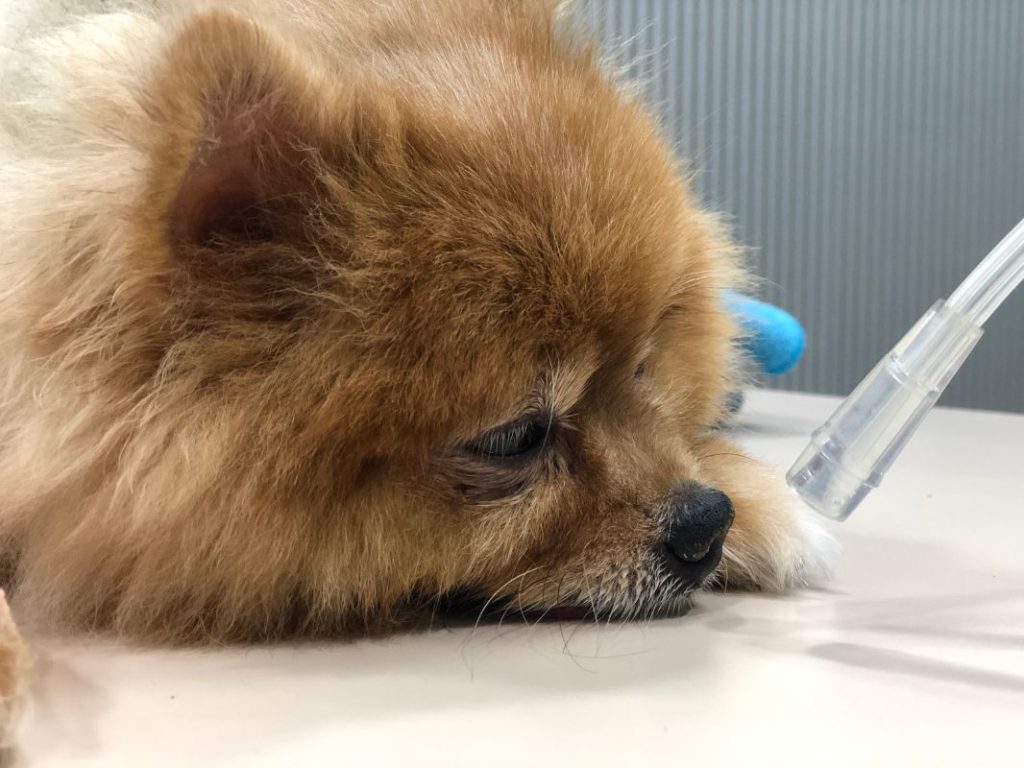
Presenter: Lenore Bacek, DVM, MS, DACVECC / Elisa M. Mazzaferro, MS, DVM, PhD, DACVECC / Amelia S. Munsterman, DVM, MS, PhD, DACVS-LA, DACVECC, CTCVMP, CVMMP / April Bays CVT, VTS (ECC), VCC / Heidi Reuss-Lamky, LVT, VTS (Anesthesia & Analgesia), (Surgery) / Misty Edmondson, DVM, MS, DACT / Jessica Rush, DVM, MS, Diplomate ACT / Kelly Foltz, BA, AAT, CVT, LVT, RVT, VTS (ECC) / April Bays CVT, VTS (ECC), VCC / Kate Boatright, VMD / Christina Fernandez, DVM, DACVECC
Total Credit Hours: 15.5 (16 Courses)
Each of these courses has been approved for continuing education credit in jurisdictions that recognize RACE approval. Additionally, Vetcetera is approved as a sponsor of continuing education for veterinarians and veterinary technicians in the state of New York.
Emergency Critical Care
Learn how to manage common emergency situations encountered in general practice, including trauma cases. Review steps to triage, stabilize, and support patients. Review common emergency techniques such as chest tube placement and thoracocentesis.
Emergency Critical Care Courses
Emergency Management of Blocked Cats — Is There Anything New?
Review the management of cats with urinary obstruction, including clinical signs and physical exam findings, followed by initial stabilization, unblocking, and aftercare.
Triage STAT: Emergency Approach to the Small Animal Trauma Patient (On Demand)
Walk through a diagnostic and therapeutic approach to the small animal trauma patient, including management of respiratory injuries, rib fractures, pneumothorax, and uroabdomen.
Esophageal Obstruction in the Horse
Dr. Amelia Munsterman reviews the diagnosis and management of esophageal obstruction in horses. She discusses esophageal anatomy and pathophysiology of obstruction, and she also provides tips for managing common sequelae and for preventing recurrence.
Diagnosis and Management of Diabetic Ketoacidosis
Dr. Elisa Mazzaferro reviews the pathophysiology of diabetes mellitus and diabetic ketoacidosis. She then discusses the diagnosis and treatment of DKA patients, including identifying and treating underlying causes of insulin resistance and nutritional support.
Addisonian Crisis Management
April Bays CVT, VTS (ECC), VCC reviews the pathophysiology of hypoadrenocorticism. She then discusses common clinical signs, diagnosis, and treatment of these patients, with a focus on patients in acute crisis.
Plus 11 other Emergency Critical Care courses!
- Advanced Catheterization Techniques
- Approach to Emergent Arrhythmias
- Common Emergencies in Small Ruminants
- Your Dog Ate What?! Managing Common Toxicities
- Bovine Dystocia Management
- Crazy Cation Lady
- BREATHE! Approach to the Respiratory Distressed Patient
- Itsy Bitsy ICU: Nursing Hacks for your Smallest Patients
- Practice Pearls: Emergency Stabilization for General Practitioners
- Sugar, You’re Going Down
- Shock: Recognition, Assessment, Treatment – CHEWY SPONSORED

Presenter: Celine Leheurteux, DVM
Total Credit Hours: 1 (1 Course)
Each of these courses has been approved for continuing education credit in jurisdictions that recognize RACE approval. Additionally, Vetcetera is approved as a sponsor of continuing education for veterinarians and veterinary technicians in the state of New York.
Euthanasia
This topic is difficult, yet one of the most important services we as veterinary professionals provide. Learning techniques, protocols and communication skills relating to euthanasia is something we don’t get much of in school. Here you can find resources to help in your day to day activities relating to euthanasia to make it as comfortable as possible for your patients, pet parents and the veterinary team.
Euthanasia Courses
Euthanasia Best Practices: Feeding the Needs of Both Families & Veterinary Teams – EUTHABAG Sponsored
Simple and practical tips that can be easily incorporated into everyday practice to improve the euthanasia experience
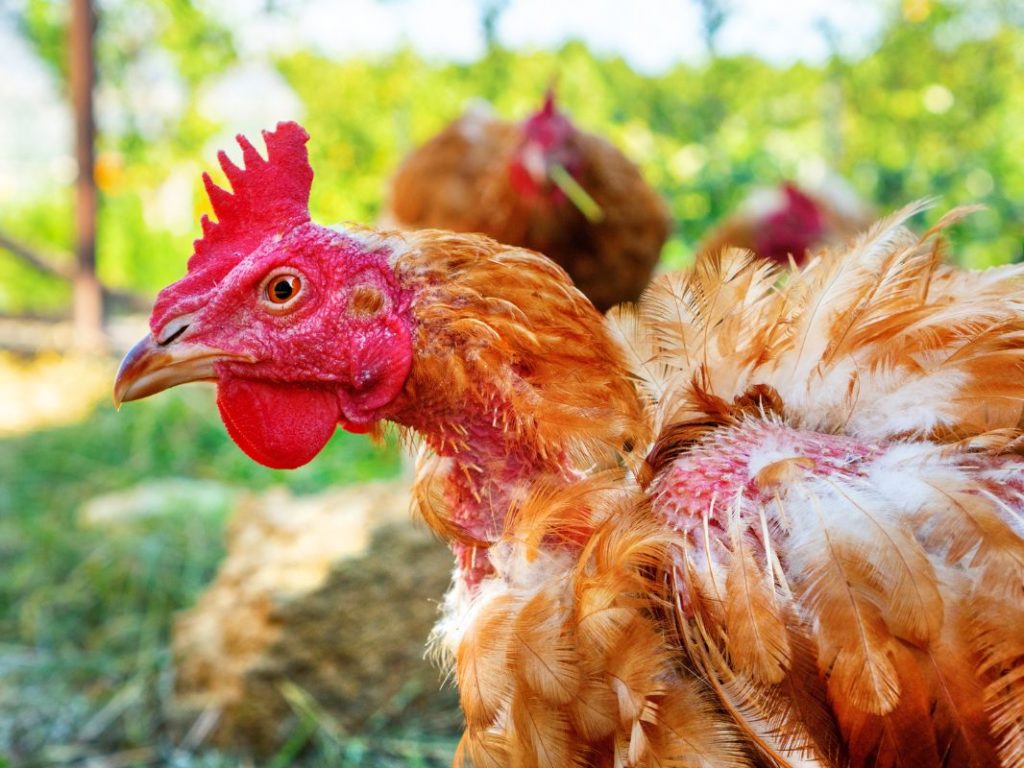
Presenter: Cathy Johnson-Delaney, DVM / Brigetta Hughes, DVM, MAM, Diplomate ACPV / Laurie Hess, DVM, DABVP / Michael Huffaker, DVM
Total Credit Hours: 3 (3 Courses)
Each of these courses has been approved for continuing education credit in jurisdictions that recognize RACE approval. Additionally, Vetcetera is approved as a sponsor of continuing education for veterinarians and veterinary technicians in the state of New York.
Exotics
Expand your knowledge of exotic animal medicine. Learn how to diagnose and treat the most common conditions in exotic pets, such as ferrets.
Exotics Courses
The Ferret: Essentials for the Practitioner
Dr. Cathy Johnson-Delaney reviews the basics of ferret medicine, including anatomy, behavior, and husbandry. She also discusses ferret handling techniques and their most common disease conditions.
A Chicken Walks Into an Exam Room — Now What Do I Do?
This course will review the basic information you need to know to start seeing backyard poultry in your practice. Basic poultry medicine, regulatory considerations, and common diseases will be reviewed.
Practical Emergency & Critical Care of Pet Birds – CHEWY SPONSORED
This program covers basic emergency and critical care recommendations for pet birds.
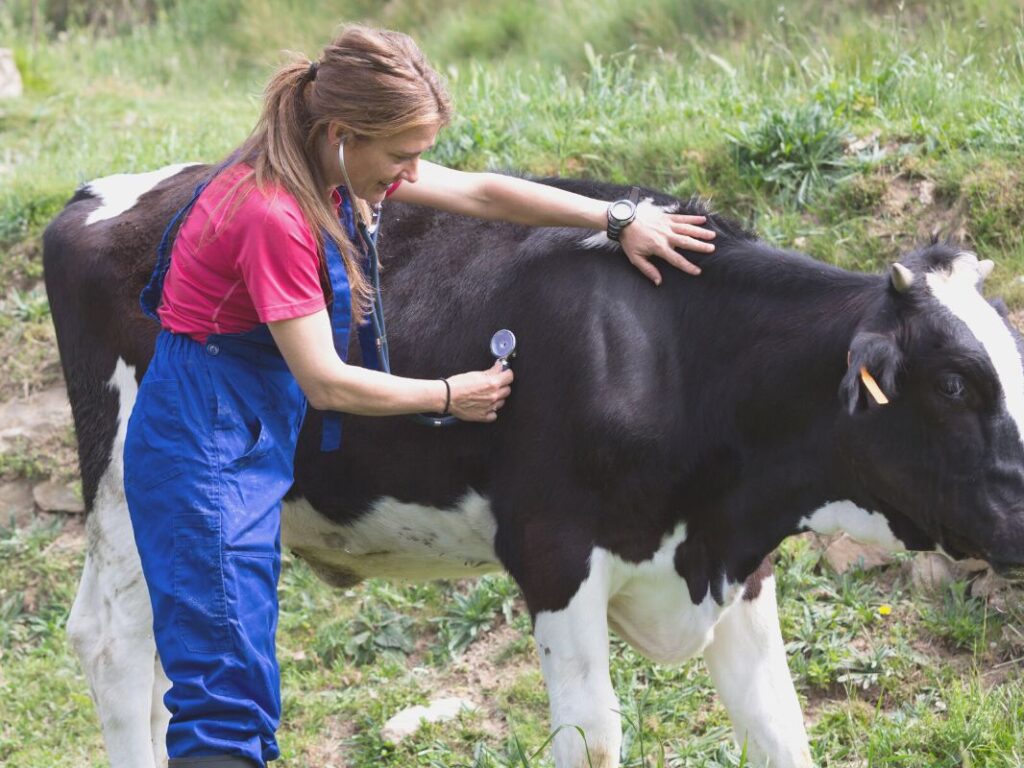
Presenter: Meg Harrington, BS, CVT
Total Credit Hours: 6 (6 Courses)
Each of these courses has been approved for continuing education credit in jurisdictions that recognize RACE approval. Additionally, Vetcetera is approved as a sponsor of continuing education for veterinarians and veterinary technicians in the state of New York.
Herd Health
Herd health on any operation, no matter the size, starts with prevention. Prevention includes biosecurity as well as preventative medicine. It is important to stay on top of best practices within these areas to ensure you can provide the best options and consult to livestock producers
Herd Health Courses
Bovine Respiratory Disease & Diagnostic Procedures for Veterinary Technicians
An overview of the common pathogens that cause BRD and the veterinary technicians’ role in performing diagnostics like thoracic ultrasounds, trans-tracheal washes and deep nasal swabs.
Developing Herd Health Programs Through a Risk-Based Approach
A discussion on the Veterinary Technician’s role in developing herd health programs with livestock producers.
Managing Calf Scours
An overview of the common pathogens that cause calf scours, management tips, and preventative measures.
Autogenous Vaccines in Food Animals
This program will discuss the role of the veterinarian in maintaining the VCPR and emphasize appropriate veterinary technician utilization when performing diagnostic sample collection.
Critical Care of the Neonate Calf
Emergency intervention tips and tricks following parturation and critical care considerations of the neonate calf.
Plus 1 other Herd Health course!
- Bovine Viral Diarrhea Virus: A Reproductive & Respiratory Disease Nightmare

Presenter: Misty Edmondson, DVM, MS, DACT / Pamela Martin, DVM / Forrest Cummings, DVM, DACVIM (SAIM) / Sarah Shropshire, DVM, PhD (CSU) / Tarini Ullal, DVM (UC Davis)
Total Credit Hours: 5.25 (8 Courses)
Each of these courses has been approved for continuing education credit in jurisdictions that recognize RACE approval. Additionally, Vetcetera is approved as a sponsor of continuing education for veterinarians and veterinary technicians in the state of New York.
Internal Medicine
Learn to navigate internal medicine cases in clinical practice. Review the diagnosis and treatment of common urinary diseases in small ruminants, including obstructive urolithiasis, ulcerative posthitis, and more.
Internal Medicine Courses
Urinary Disease in Small Ruminants
Dr. Misty Edmondson reviews the most common causes of urinary tract disease in small ruminants. She discusses clinical signs, diagnostics, treatment, and prevention of urolithiasis, and she also briefly covers conditions such as ulcerative posthitis and renal amyloidosis.
Fun With Flags and IMHA
This presentation covers the diagnostic and therapeutic approach to IMHA with brief discussion on anemia and transfusion medicine, as well as practical approaches to case management.
Immune Mediated Thrombocytopenia – What the Deuce?!?
This presentation covers the diagnostic and therapeutic approach to IMT with brief discussion on comorbidities including Vector-borne diseases and IMHA, as well as practical approaches to case management.
Diabetes Mellitus in Dogs
In this premium webinar produced in partnership with Vet Candy Studios, we will review the basics of diabetes mellitus in dogs. We will discuss anatomy, pathophysiology, comorbidities, management, and more!
Diabetes Mellitus in Cats
In this premium webinar produced in partnership with Vet Candy Studios, we will review the basics of diabetes mellitus in cats. We will discuss anatomy, pathophysiology, comorbidities, management, and more!
Plus 2 other Internal Medicine courses!
- Cushing’s Disease (Vet Candy Simulated live Webinar)
- Addison’s Disease – Vet Candy Simulated Live Webinar
- Clinical Tips, Tests, and Treatments for Canine Immune and Copper Associated Chronic Hepatitis – AKC CHF SPONSORED
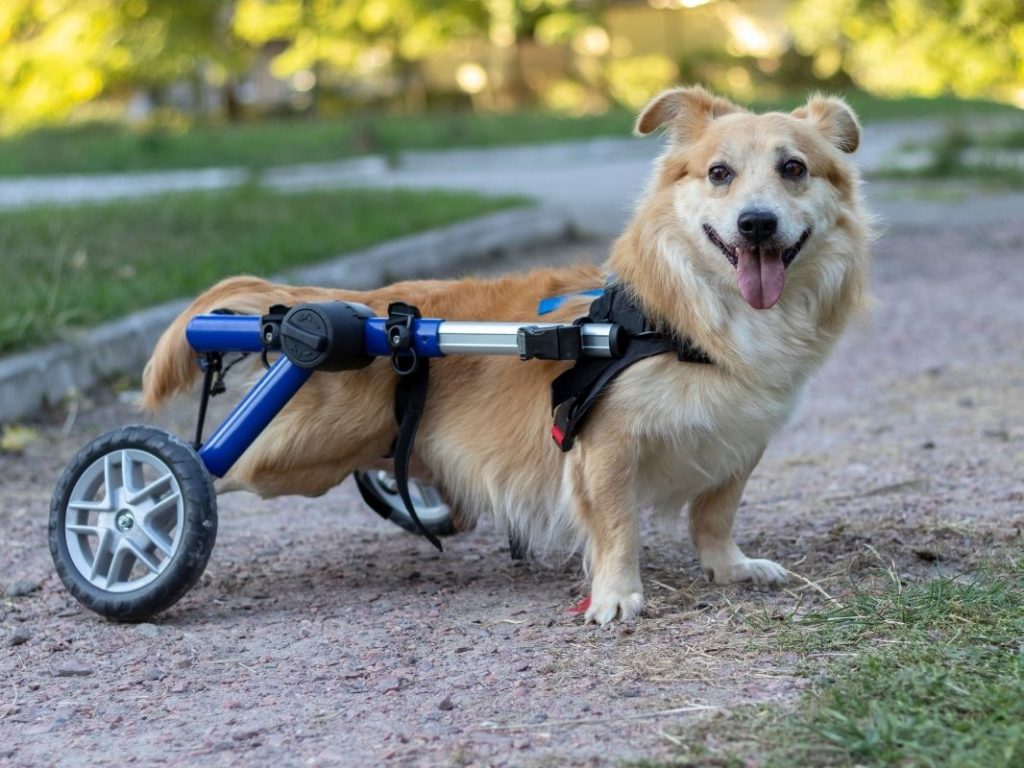
Presenter: Jill Narak, DVM, MS, DACVIM (Neurology)
Total Credit Hours: 2 (2 Courses)
Each of these courses has been approved for continuing education credit in jurisdictions that recognize RACE approval. Additionally, Vetcetera is approved as a sponsor of continuing education for veterinarians and veterinary technicians in the state of New York.
Neurology
Learn how to localize lesions based on clinical signs. Review diagnostic steps for neurologic workup and common differentials for various lesion localizations. Review treatment recommendations for the most common neurologic presentations.
Neurology Courses
Neuro for Newbies
Review diagnostic steps for neuroanatomic localization in the neurologic patient. This lecture also covers the diagnosis and management of commons diseases and injuries, including seizures, brain and spinal trauma, and paralysis.
Help! My Patient Can’t Walk
Dr. Jill Narak reviews differential diagnoses for down cats and dogs. She then dicusses a step-by-step diagnostic approach in general and specialty practice. Finally, she discusses management and prognosis for these cases.
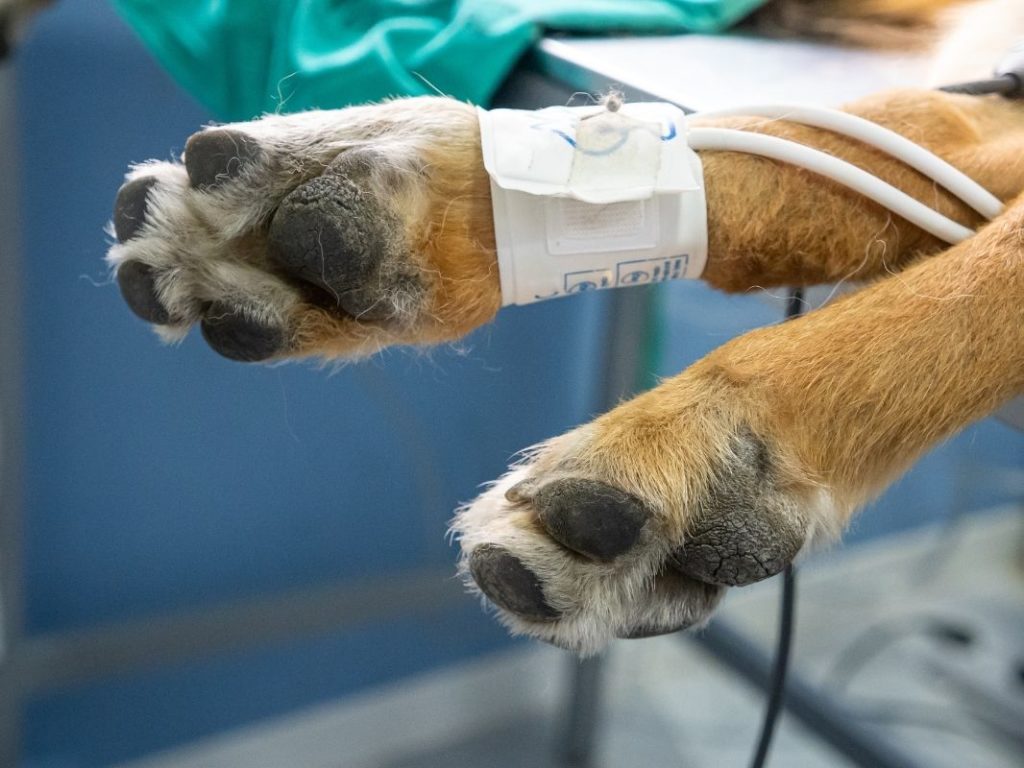
Presenter: Heidi Reuss-Lamky, LVT, VTS (Anesthesia & Analgesia), (Surgery) / Kelly M. Foltz, BA, AAT, CVT, LVT, RVT, VTS (ECC)
Total Credit Hours: 3 (3 Courses)
Each of these courses has been approved for continuing education credit in jurisdictions that recognize RACE approval. Additionally, Vetcetera is approved as a sponsor of continuing education for veterinarians and veterinary technicians in the state of New York.
Nursing
Nursing care spans across many areas in veterinary medicine with veterinary technicians taking the lead in these areas the majority of the time. Learn and review protocols and techniques in providing the best quality care and safety to your patients.
Nursing Courses
Dopp It Like It’s Hot: Blood Pressure Review
Kelly Foltz, BA, AAT, CVT, LVT, RVT, VTS (ECC) reviews plood pressure assessment in dog and cats
It’s a Wrap! Bandaging for Beginners
Heidi Reuss-Lamky reviews bandaging techniques and tips.
It’s Catchy! Infection Control Strategies for the Veterinary Practice
Heidi Reuss-Lamky reviews best practices with infection control in the veterinary practices
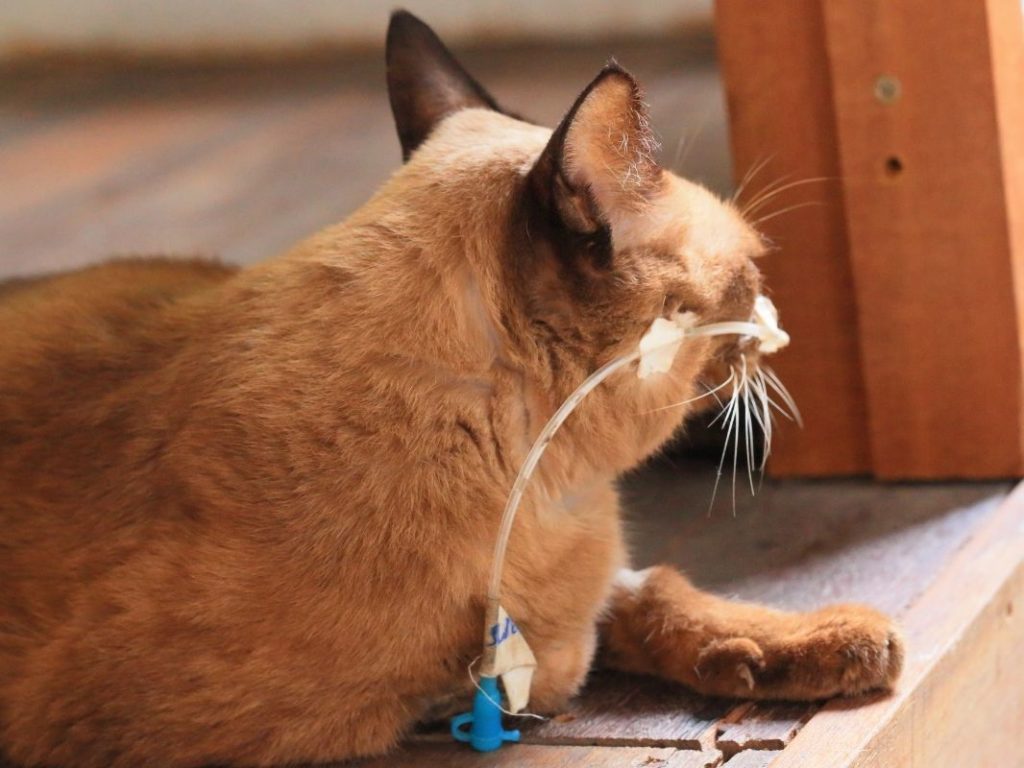
Presenter: Mark Tager, MD / Katie Kangas, DVM, CVA, CVP / Chad Erickson / Kelly M. Foltz, BA, AAT, CVT, LVT, RVT, VTS (ECC) / Lindsey Bullen, DVM, DACVIM (Nutrition) / Kara Burns, MS, MEd, LVT, VTS (Nutrition)
Total Credit Hours: 6 (8 Courses)
Each of these courses has been approved for continuing education credit in jurisdictions that recognize RACE approval. Additionally, Vetcetera is approved as a sponsor of continuing education for veterinarians and veterinary technicians in the state of New York.
Nutrition
Learn about nutrition and its impact on overall health. Learn how nutrition and gut health can affect the immune system, musculoskeletal health, allergies, and more.
Nutrition Courses
The Role of Bovine Colostrum in Dog & Cat Nutritional Health Module 1
This module sponsored by GastroDefense reviews the impact of nutrition on overall health in dogs and cats. Gut health and conditions that are driven by dysbiosis, immune dysregulation, and inflammation are reviewed.
The Role of Bovine Colostrum in Dog & Cat Nutritional Health Module 2
This module sponsored by GastroDefense reviews the science behind bovine colostrum and its benefits as a nutritional supplement for dogs and cats. The presenters show how it can be used to bolster and balance the immune system, improve barrier function in the intestines, downregulate inflammation, and serve as an anti-infective agent.
The Role of Bovine Colostrum in Dog & Cat Nutritional Health Module 3
This module sponsored by GastroDefense covers strategies for practice building aimed around the major pillars in the digital world. Concepts such as website design, SEO, reputation, and social media presence are reviewed.
Hose Beast: Enteric Feeding Tubes
Kelly Foltz reviews the indications for supplemental enteric nutrition, the commonly used feeding tubes, their placement, maintenance, and troubleshooting.
Small Animal Nutrition – Busting Those Myths and Misconceptions
This course will discuss the most common companion and animal diet trends with a focus on extracting the science from the fiction. An emphasis is also placed on client communication throughout the entirety of the lecture.
Plus 3 other Nutrition courses!
- Battling Inappetence: Tips, tricks and more!
- The Art of Assisted Feeding
- Feline Hypertrophic Cardiomyopathy and the Role of Nutrition
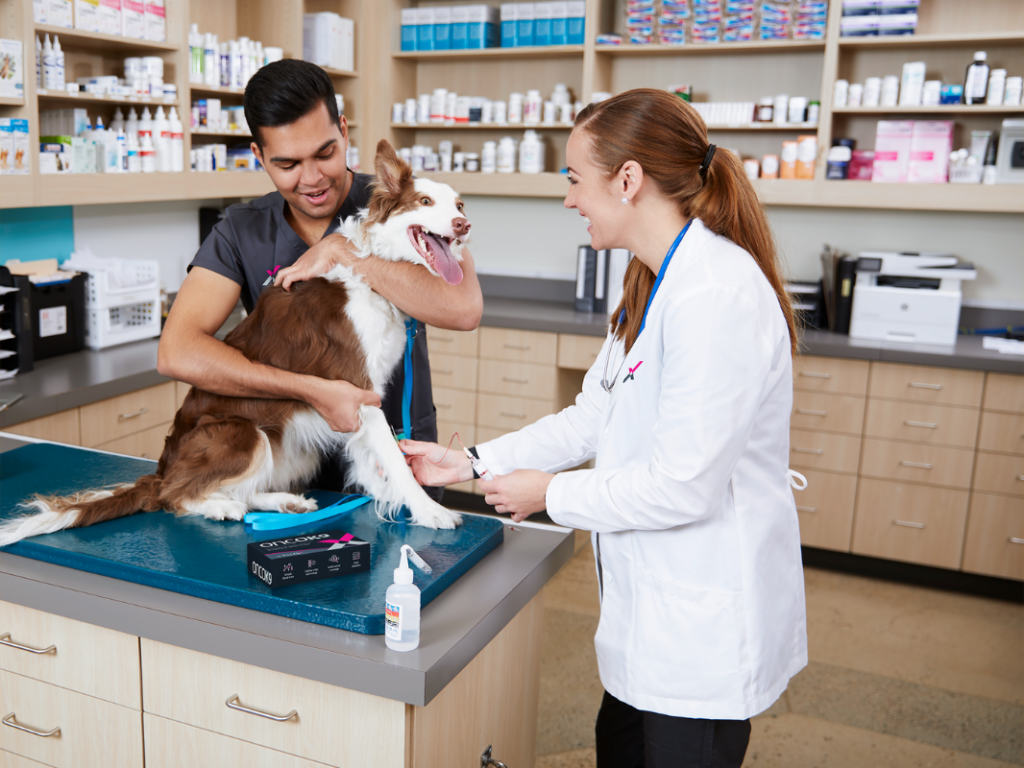
Presenter: Andi Flory, DVM, DACVIM (Oncology) / Allison O’Kell, DVM, MS & Todd Cohen, DVM, DACVIM / Rachel Venable, DVM, MS, DACVIM (Oncology)
Total Credit Hours: 4 (4 Courses)
Each of these courses has been approved for continuing education credit in jurisdictions that recognize RACE approval. Additionally, Vetcetera is approved as a sponsor of continuing education for veterinarians and veterinary technicians in the state of New York.
Oncology
Learn about the diagnosis and management of common neoplastic diseases. Review cutting edge diagnostics and therapeutics that can be utilized to improve patient outcomes.
Oncology Courses
Cancer detection in 2022: Can a blood test really find 30 different types of cancer in dogs?
The session sponsored by PetDx will review the clinical applications of PetDx’s cell-free DNA-based technology and provide initial laboratory experience showing how this test is being used in veterinary practices across the country.
Is it cancer? Use of a blood-based test as an aid-in-diagnosis for cancer detection in dogs
We will review a novel tool in the clinician’s toolbox – liquid biopsy – a test that evaluates a blood sample for the presence of circulating tumor DNA which indicates the current presence of cancer in the body.
Empowering Vets in General Practice to Give Chemotherapy Safely and Wisely
This presentation will review what chemotherapy is and the risks of handling it. We will discuss safety and regulations of administering chemotherapy in the clinic. We will then cover chemotherapy pills which can be given in the clinic with more ease than IV chemotherapy. We will review the different medications, uses, and how to communicate all this with the pet owner.
Frontiers in Veterinary Oncology: Evaluating Liquid Biopsy, AI Predictions, and Genomic Insights for Canine Cancer Management
This presentation evaluates new technologies recently available in veterinary medicine such as cancer screening test with liquid biopsy, AI predictions for response to lymphoma and drugs, and genetic mutations leading to therapy predictions. This information can help aid the clinician in understanding the different technologies and products now available and when or when not to use them in the clinic.
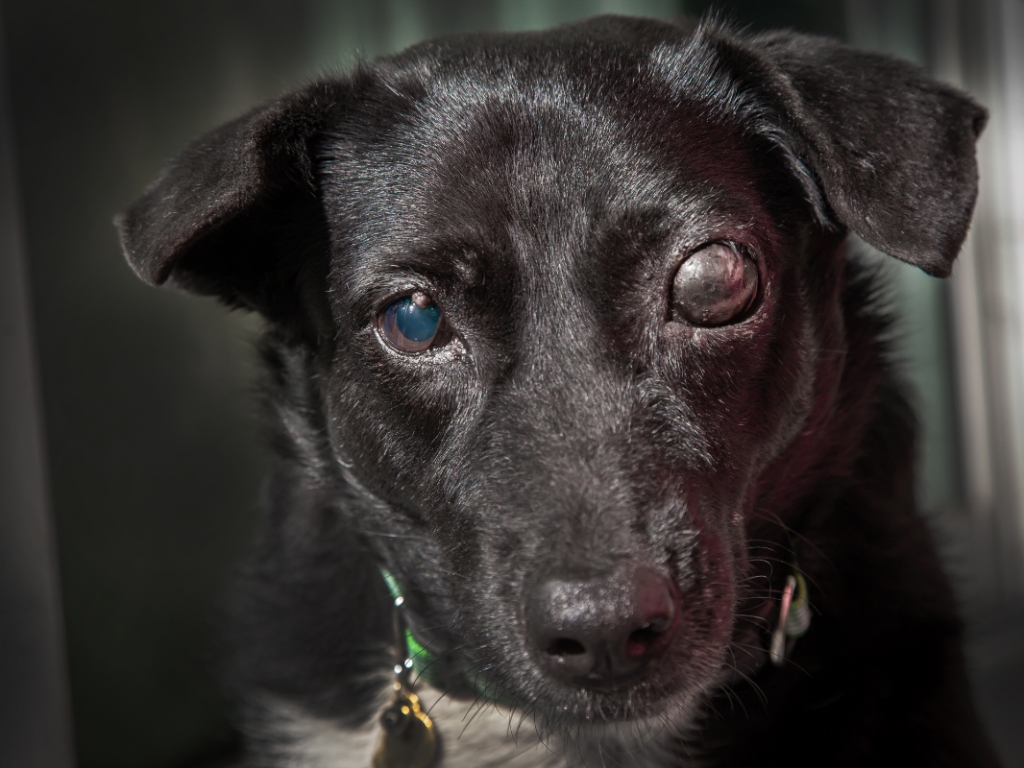
Presenters: Todd Marlo, DVM, MS, DACVO / Jessica Meekins, DVM, DACVO / Amy J. Rankin, DVM, DACVO
Total Credit Hours: 7 (7 Courses)
Each of these courses has been approved for continuing education credit in jurisdictions that recognize RACE approval. Additionally, Vetcetera is approved as a sponsor of continuing education for veterinarians and veterinary technicians in the state of New York.
Ophthalmology
Learn recommended diagnostic steps, common differential diagnoses, and treatment options for patients presenting to you in small animal general practice for a complaint of “red eye.” Get tips on communicating with clients and when to refer patients to specialists for diagnostics and treatment.
Ophthalmology Courses
Canine Red Eye: External Causes
Explore differentials for common external causes for a dog to present with the complaint of a “red eye.” Review diagnostic tests, treatment options, and prognosis for different disease conditions and practical client communication tips.
Canine Red Eye: Internal Causes
Review intraocular causes for a dog to present with the complaint of a “red eye,” including glaucoma, anterior uveitis, and hyphema. Learn the etiology, diagnosis, and treatment of each condition and helpful client communication advice.
Feline Red Eye: At the Surface
Receive a detailed review of surface ocular causes of a “red eye” in cats, including feline herpesvirus-1, bacterial causes, and neoplasia. Review clinical signs, diagnostic workup, and treatment, with emphasis placed on what can be managed in a primary care setting vs. when to refer to an ophthalmology specialist.
Feline Red Eye: Delving Deeper
Provides a detailed review of intraocular causes of a “red eye” in cats, including uveitis, glaucoma, hyphema. Discuss clinical signs, diagnosis, and treatment of each condition with emphasis on what can be managed in a primary care setting vs. when to refer to an ophthalmology specialist.
Ophthalmic Emergencies in Dogs and Cats
Review common ophthalmic emergencies encountered in small animal practice, including corneal ulcers, foreign bodies, uveitis, glaucoma, retrobulbar abscesses, and proptosis.
Plus 2 other Ophthalmology courses!
- Glaucoma in Dogs and Cats
- Equine Ophthalmology
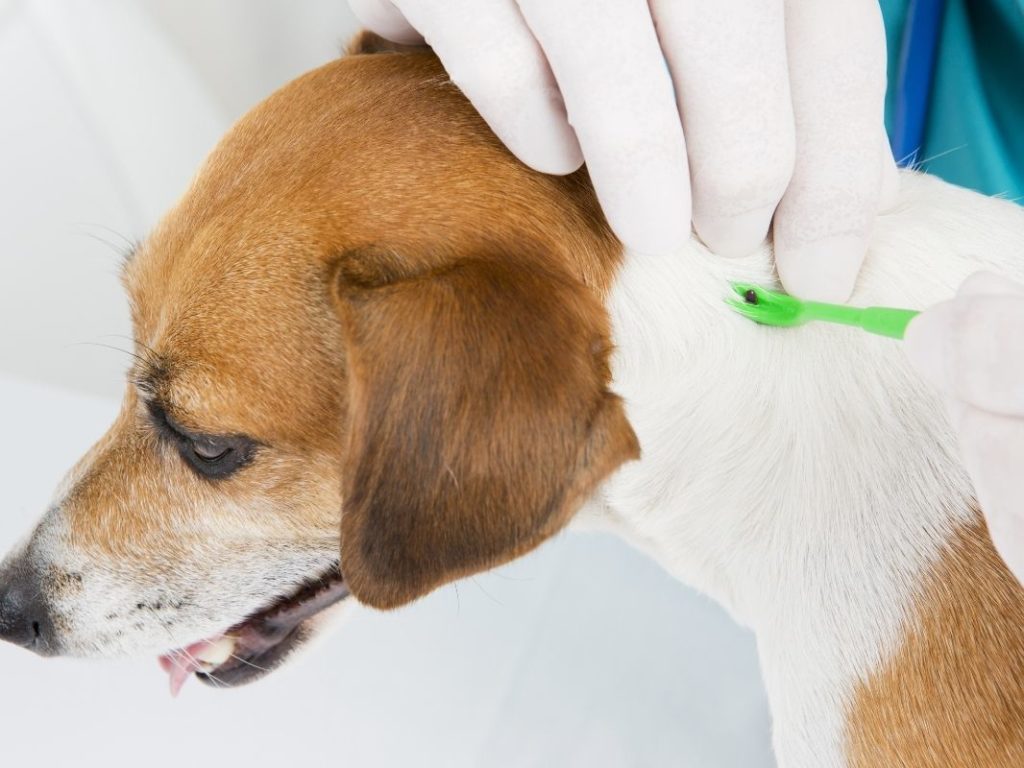
Presenters: Lindsay Starkey, DVM, PhD, DACVM-Parasit / Michelle Evason, BSc, DVM, DACVIM / Meg Harrington, BS, CVT / Barbie Papajeski, MS, LVT, RLATG, VTS (Clinical Pathology)
Total Credit Hours: 6 (6 Courses)
Each of these courses has been approved for continuing education credit in jurisdictions that recognize RACE approval. Additionally, Vetcetera is approved as a sponsor of continuing education for veterinarians and veterinary technicians in the state of New York.
Parasitology
Learn how to diagnose and treat common parasitological diseases, such as heartworm disease and Lyme disease. Discover strategies for client compliance and parasite prevention.
Parasitology Courses
Heartworm: Current Trends and Updates on Diagnosis and Prevention
Dr. Lindsay Starkey reviews the diagnosis of heartworm disease, including ways to handle conflicting results. She then discusses treatments and prevention strategies, with some tips for increasing compliance.
Tick’d Off: Lyme Borreliosis
Dr. Michelle Evason discusses clinical signs, diagnosis, and treatment of Lyme disease in dogs and cats. She then reviews prevention strategies.
Tick-borne disease in dogs and cats: Besides Lyme in the Tick of Time
This case-based session will summarize key aspects of anaplasmosis and ehrlichiosis in dogs and cats and provide resources for practical clinical management.
Ruminant Parasitology
An overview of the most common ruminant parasites, performing in-house fecal egg counts and anthelmintic therapies currently available.
Parasitology Part 1: Sample Collection, Processing and Differentiating Pseudoparasites from True Parasites
This session will cover the optimal collection of samples for parasitology testing, including feces, blood, urine, respiratory washes/lavages, and cutaneous samples.
Plus 1 other Parasitology course!
- Parasitology Part 2: Microscopic parasite identification
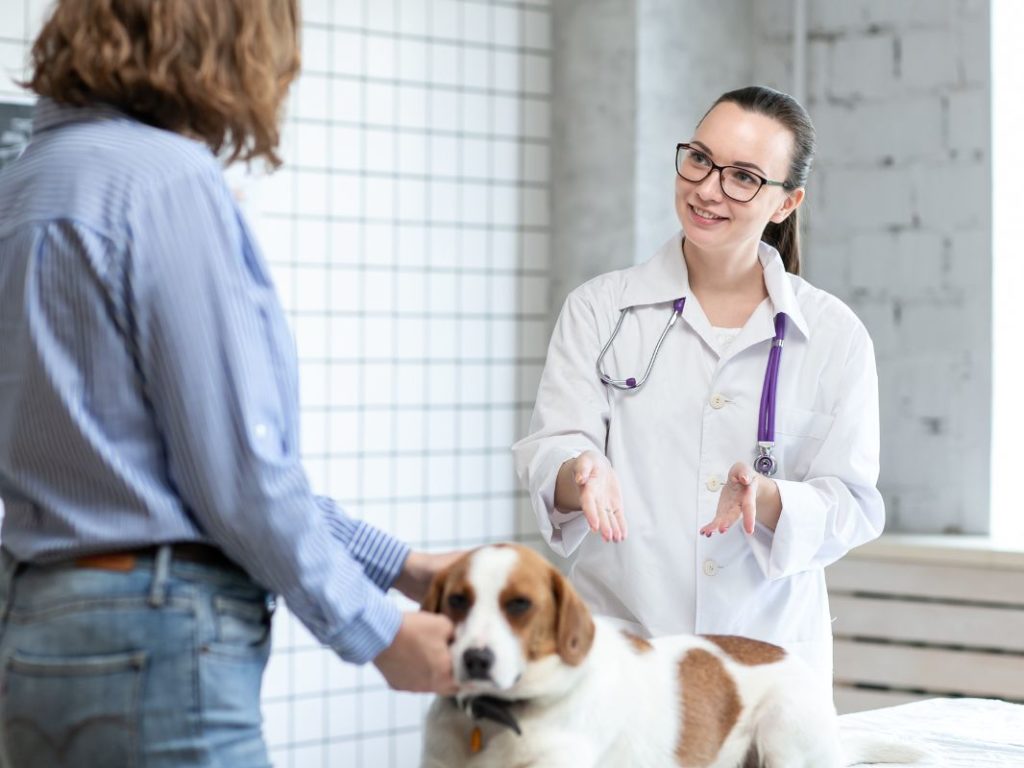
Presenters: Charlotte Lacroix, DVM, JD / Caitlyn Dewilde, DVM / Joy Fuhrman, DVM, MBA, CPA / Marcy Bliss CEO of Wedgewood / Ernie Ward CVO, Vertical Vet / Leslie Boudreau BASVT, TVTg, CVPM, PHR, PHRca, SPHR / Cathy Barnette DVM / Peter Weinstein, DVM, MBA
Total Credit Hours: 9 (9 Courses)
CE Credit: RACE-approved, CVPM-approved
Each of these courses has been approved for continuing education credit in jurisdictions that recognize RACE approval. Additionally, Vetcetera is approved as a sponsor of continuing education for veterinarians and veterinary technicians in the state of New York. These courses have also been approved by the Certified Veterinary Practice Manager Board as applicable toward the continuing education requirement for the Certified Veterinary Practice Manager (CVPM) program offered by the Veterinary Hospital Managers Association (VHMA).
Practice Management
Enhance your practice’s business operations with courses on team development, social media, marketing, management, and more.
Practice Management Courses
Motivating and Developing Your Team
Review the principles of performance management programs (PMPs) along with tips for using them to maximize your team’s performance.
Social Media for the Tech-Challenged and Camera Shy DVMs
Successful social media use doesn’t have to require a doctorate degree in geek-speak. Get an overview of social media platforms, tips for starting out, and strategies to boost your confidence behind the camera.
Aiming for Five Stars: Building Positive Reviews
Veterinary teams spend a lot of time worrying about negative online reviews, but are you doing all that you can to combat them? A few bad reviews can certainly be detrimental to a practice, but in a sea of dozens (or hundreds) of good reviews, they barely make a dent if at all. Focus on the positive and adopt a proactive approach to getting those five star reviews.
Cultivating the Client Behaviors You Want Through Marketing Efforts
Use your marketing to subtly nudge and facilitate your clients to take the actions that benefit your practice and your team. Go beyond getting them to book that appointment, shop online or request a refill. Get them to do it in the way that is most efficient for your team and/or provides the best client experience. Make your marketing a win-win for everyone!
Using Your Diagnostic Skills to Assess Practice Financial Health
You think like a veterinarian and not like an accountant. In this webinar, attendees will walk through the Subjective, Objective, Assessment and Plan (SOAP) sections of their practice using the same thought processes they would to prepare a medical record.
Plus 3 other Practice Management courses!
- GFI 256: Your Guide to Practice Preparedness
- We Work Hard for the Money: Benefits and Drawbacks of Production Based Compensation
- The ABC’s of Inventory Management
- Care Credit Webinar – The Impact of Cost of Veterinary Care: How to Navigate the Path Forward

Presenters: Stephen Cital RVT, RLAT, SRA, VTS- LAM / Kate Boatright, VMD / Meg Harrington, BS, CVT, VTS (LAIM) / Joy Fuhrman, DVM, MBA, CPA / Peter Weinstein, DVM, MBA / Addie Reinhard, DVM, MS / Rachel Venable, DVM, MS, DACVIM (Oncology) / Wendy Hauser, DVM
Total Credit Hours: 9 (9 Courses)
CE Credit: RACE-approved, CVPM-approved
Each of these courses has been approved for continuing education credit in jurisdictions that recognize RACE approval. Additionally, Vetcetera is approved as a sponsor of continuing education for veterinarians and veterinary technicians in the state of New York. These courses have also been approved by the Certified Veterinary Practice Manager Board as applicable toward the continuing education requirement for the Certified Veterinary Practice Manager (CVPM) program offered by the Veterinary Hospital Managers Association (VHMA).
Professional Development
Grow and enhance your personal and professional skills. This is an important part of your career development and being your happiest and most productive self.
Professional Development Courses
Breaking Out of the Clinic: Career path ideas for the credentialed veterinary technician
Stephen Cital dives into other career options veterinary technicians are already qualified for or new opportunities that build off the skills and experience veterinary technicians already have.
There’s More than One Way to Treat a Cat: A Practical Approach to the Spectrum of Care
Do you find talking about money stressful? In school, we learn gold standard medicine, but in practice, we must balance client financial limitations with the best interest of our patients. There are flexible ways to get the information we want and need while still working within a client’s means by embracing the concepts of spectrum of care and incremental care.
Communication Skills to Make Clients Love You
During this lecture, we will review basic communication tools and then discuss their application in various situations in the clinic, including making diagnostic and treatment recommendations, talking to upset clients, managing complications, and discussing finances.
Veterinary Technician Careers and Utilization: Let’s Max Out Your Potential
A discussion on getting the most out of your education and experience as well as knowing your worth.
Leadership Skills for All: How Anyone in a Practice can Maximize their Personal Leadership Potential
This presentation describes the fundamental leadership and management skills that good employees need to learn to become good leaders. In this session, attendees will learn how to become leaders within their practice, how to identify and develop their leadership skills and how to manage and collaborate with teams and practice owners to build revenues and profitability.
Plus 4 other Professional Development courses!
- Care Credit Webinar – The Impact of Cost of Veterinary Care: How to Navigate the Path Forward
- Early Career Wellbeing: Solutions to Help Young Veterinarians Thrive
- How to Give Bad News and be a Better Communicator
- “Out of Bounds” – The Role of Self in Establishing Personal and Professional Limits
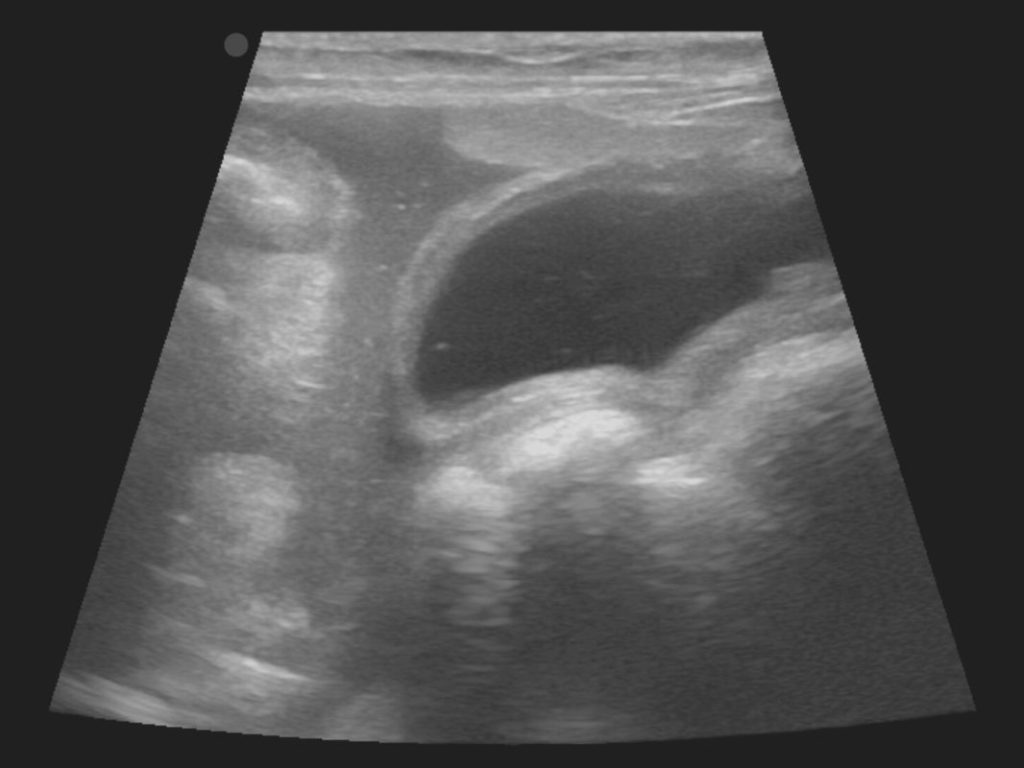
Presenters: Heidi Reuss-Lamky, LVT, VTS (Anesthesia & Analgesia), (Surgery) / Greg Lisciandro, DVM, DABVP, DACVECC
Total Credit Hours: 6 (6 Courses)
CE Credit: RACE-approved, CVPM-approved
Each of these courses has been approved for continuing education credit in jurisdictions that recognize RACE approval. Additionally, Vetcetera is approved as a sponsor of continuing education for veterinarians and veterinary technicians in the state of New York. These courses have also been approved by the Certified Veterinary Practice Manager Board as applicable toward the continuing education requirement for the Certified Veterinary Practice Manager (CVPM) program offered by the Veterinary Hospital Managers Association (VHMA).
Radiology
Learn about radiation safety for both patients and veterinary professionals. Review patient positioning for commonly utilized views.
Radiology Courses
‘So Rad!’ Positioning for Safety and Success in the Radiology Suite
Heidi Reuss-Lamky reviews principles of radiation safety. She then provides detailed instructions on patient positioning for the most commonly utilized views in small animal practice.
AFAST© Introduction and Its Target-organ Approach – Everyday Ultrasound
Dr. Greg Lisciandro introduces the clinical utility of AFAST®, its target-organ approach, and its applied fluid scoring system.
AFAST© and Its Abdominal Fluid Scoring System for the Bleeding Patient
Dr. Greg Lisciandro will introduce the clinical utility of AFAST®, its target-organ approach, and its applied fluid scoring system.
TFAST for the Accurate Diagnosis of Pleural and Pericardial Effusion
This session will review TFAST point-of -care ultrasound views. Dr. Lisciandro will discuss how to use TFAST techniques to diagnose pleural and pericardial effusion.
Vet BLUE© Introduction to Lung Ultrasound and Its Use for Small Animal and COVID-19 Pneumonia
In this program, we will review Vet Blue, a novel technique for point-of-care ultrasound of lungs in veterinary patients. We will discuss scoring and how to diagnose and track common respiratory conditions.
Plus 1 other Radiology course!
- Canine Anaphylactic Medically Treated Hemoabdomen – A Unique Canine Complication Every Veterinarian Should Know

Presenters: Heidi Lobprise, DVM, DAVDC
Total Credit Hours: 1 (1 Course)
CE Credit: RACE-approved, CVPM-approved
Each of these courses has been approved for continuing education credit in jurisdictions that recognize RACE approval. Additionally, Vetcetera is approved as a sponsor of continuing education for veterinarians and veterinary technicians in the state of New York. These courses have also been approved by the Certified Veterinary Practice Manager Board as applicable toward the continuing education requirement for the Certified Veterinary Practice Manager (CVPM) program offered by the Veterinary Hospital Managers Association (VHMA).
Senior Pet Care
Determining the relative age or life stage of a pet is important to provide optimal care, which includes more frequent wellness examinations and diagnostic efforts to identify and manage issues from early phases. By keeping up-to-date with the recommendations for each life stage of the pets we care for, we can help pet parents provide the very best care for each stage of their pet’s life.
Senior Pet Care Courses
Celebrating Senior Pets!
With advances in preventive and medical care, our patients are living long, healthy lives, with an emphasis on health-span, not just life-span. Determining the relative age or life stage of a pet is important to provide optimal care, which includes more frequent wellness examinations and diagnostic efforts to identify and manage issues from early phases.
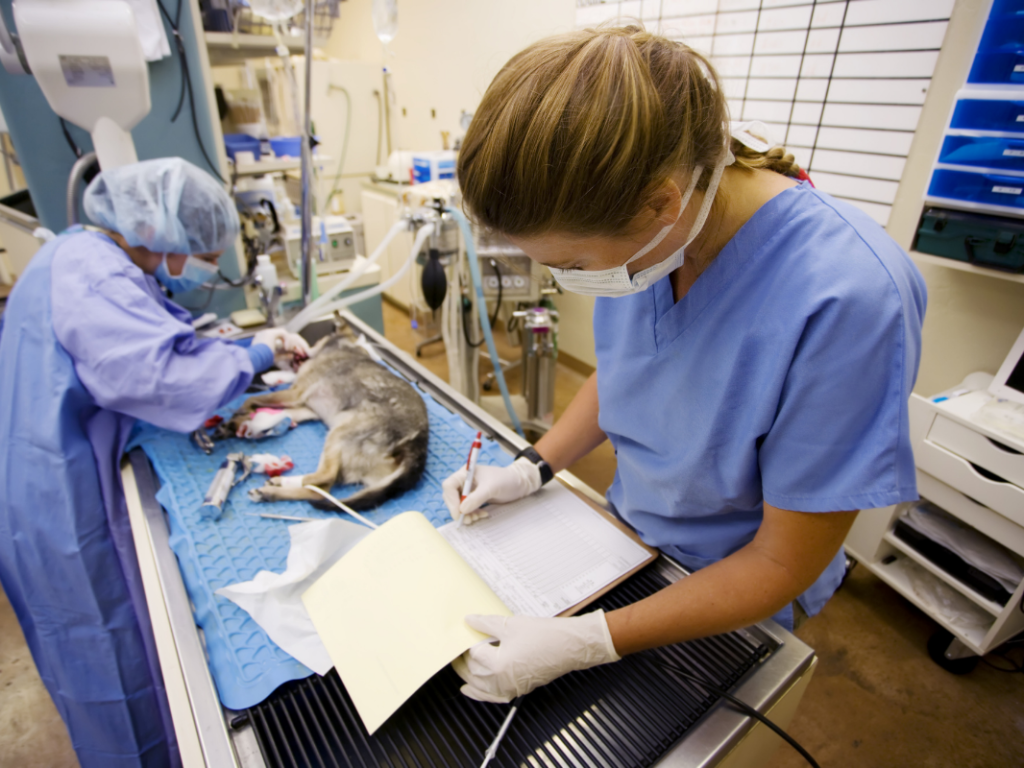
Presenters: John Berg, DVM, DACVS / Heidi Reuss-Lamky, LVT, VTS (Anesthesia & Analgesia), (Surgery)
Total Credit Hours: 10 (17 Courses)
Each of these courses has been approved for continuing education credit in jurisdictions that recognize RACE approval. Additionally, Vetcetera is approved as a sponsor of continuing education for veterinarians and veterinary technicians in the state of New York.
Surgery
Review step-by-step instructions on small animal soft tissue surgeries that are frequently encountered in general practice. Learn common causes of these surgical conditions, clinical signs, indications for surgery, recommended materials, surgical treatment options, postoperative care, and potential complications. View surgical video clips for most of the procedures listed.
Surgery Courses
Cesarean Section in Dogs and Cats
Reviews gestation and parturition as well as types and clinical signs of dystocia, medical treatment, and indication for cesarean section. Further, the lecture includes step-by-step surgical procedures, including anesthesia considerations, handling of neonates, and postoperative care of the dam.
Cystotomy in Dogs and Cats
Reviews the most common types of urinary calculi in dogs and cats and provides step-by-step directions for performing a cystotomy. The lecture also delves into suture material, suture patterns, and postoperative care.
Enterotomy in Dogs and Cats
Reviews causes of intestinal obstruction, medical management, and surgical procedures for enterotomies in dogs and cats.
Esophageal Feeding Tube Placement in Dogs and Cats
Provides instruction on esophageal feeding tube placement in dogs and cats, including a narrated step-by-step surgical video.
Gastric Dilatation and Volvulus
John Berg, DVM, DACVS provides step-by-step instruction on diagnosing and surgically treating gastric dilatation and volvulus in dogs.
Plus 12 other Surgery courses!
- Gastrotomy in Dogs and Cats
- Intestinal Resection and Anastomosis in Dogs and Cats
- Intra-abdominal Biopsy Techniques in Dogs and Cats
- Splenectomy in Dogs and Cats
- Tracheostomy Tube Placement in Dogs and Cats
- Soft Palate Resection and Correction of Stenotic Nares in Dogs
- Mass Excision: Soft Tissue Sarcomas and Mast Cell Tumors in Dogs and Cats
- Perineal Urethrostomy in Cats
- Ruptured Bladder Repair in Dogs and Cats
- Management of Septic Abdomen in Dogs and Cats
- Role of the Veterinary Surgical Scrub Technician
- Beating the ‘Bugs’–Sterilization is Instrumental

Presenters: Karyn Bischoff, DVM, MS, DABVT / Renee Schmid, DVM, DABT, DABVT
Total Credit Hours: 3 (3 Courses)
CE Credit: RACE-approved
Each of these courses has been approved for continuing education credit in jurisdictions that recognize RACE approval. Additionally, Vetcetera is approved as a sponsor of continuing education for veterinarians and veterinary technicians in the state of New York.
Toxicology
Learn about common toxicities affecting veterinary patients. Learn how to recognize, diagnose, and treat commonly encountered toxin exposures, including pet food contaminants.
Toxicology Courses
Pet Food: Recalls and Product Safety
Dr. Karyn Bischoff reviews the roles of veterinarians and the FDA in pet food safety. She discusses common types and sources of contamination, including natural contaminants, formulation errors, and adulteration.
Equine Feed Contamination and Toxicology
Dr. Karyn Bischoff reviews equine feed contamination, including natural contaminants, formulation errors, and adulterations. She also discusses the proper veterinary approach to cases of suspected feed contamination.
Small Animal Toxicology Review
This course will review the common small animal toxins to prepare for certifying examinations. Mechanism of action, clinical signs and treatment will also be reviewed.

Presenters: Lauren Forsythe, PharmD, DICVP / Kate Boatright, VMD
Total Credit Hours: 6 (6 Courses)
CE Credit: RACE-approved
Each of these courses has been approved for continuing education credit in jurisdictions that recognize RACE approval. Additionally, Vetcetera is approved as a sponsor of continuing education for veterinarians and veterinary technicians in the state of New York.
Veterinary Pharmacology
As veterinary professionals, we know that this area is changing and expanding all the time. It is very important to stay up to date and aware of all things relating to the areas of pharmacology such as drug classification, effects, side effects, uses, laws and regulations, client education and more relating to veterinary medicine and the safety of our patients, clients and veterinary team members.
Toxicology Courses
Compounded Medications Explained: Part 1
This session will identify the pros and cons of commonly compounded dosage forms, as well as the risks we need to be aware of when reaching for compounded medications.
Compounded Medications Explained: Part 2
This session will go through what makes a dosage form high risk, some additional considerations about transdermal compounds, and what to look for in a compounding pharmacy.
Medication Counseling
This session will cover the basics of medication counseling utilizing the framework of the California regulations to simplify the concept for practitioners and technicians practicing in any state.
DEA Compliance is Preventative Care Part 1 – In Hospital Drug Diversion
This session will introduce the opioid epidemic and how it connects to veterinary medicine as the context for why controlled substance regulations are critical. The session will then focus on the incidence of in-hospital drug diversion, how to identify it, and how to prevent it.
DEA Compliance is Preventative Care Part 2 – Regulatory Compliance
This session will consider the various aspects of DEA regulations to provide ideas for compliance alongside discussion of the various nuances that present compliance difficulties. This session will focus on providing perspective on what DEA regulations do and do not clearly explain as well as practical tips for staying in compliance.
Plus 1 other Veterinary Pharmacology course!
- Navigating the Muddy Waters of Pharmacy: Improving Outcomes and Reducing Errors

Presenters: Certified Compassion Fatigue Specialist Julie Squires / Christopher Inniss, DVM (he/him) / Niccole Bruno, DVM / Genine Ervin-Smith, DVM. MPH / Kate Boatright, VMD
Total Credit Hours: 6 (6 Courses)
CE Credit: RACE-approved
Each of these courses has been approved for continuing education credit in jurisdictions that recognize RACE approval. Additionally, Vetcetera is approved as a sponsor of continuing education for veterinarians and veterinary technicians in the state of New York.
Wellness/Self Care
Learn useful techniques for supporting your mental health and wellness. Learn to recognize and combat common issues facing veterinarians and veterinary technicians, such as burnout and compassion fatigue.
Wellness/Self Care Courses
Going Beyond Compassion Fatigue
Certified Compassion Fatigue Specialist and Life Coach Julie Squires provides a foundational look at compassion fatigue. She explores its impact on individuals and practices, and she discusses how to build resilience in veterinary medicine. She also provides information on self-care and adopting a positive mindset.
Allyship in the Workplace: Understanding the LGBTQIA Experience
This course briefly discusses the discriminatory practices across the United States, provides an understanding of the terminology for LGBTQ+ individuals, and ways to practice and benefit from allyship toward LGBTQ+ individuals in the veterinary workplace.
Purposeful Leadership: Cultivating an environment founded in diversity, equity, inclusion, & belonging (DEIB)
Veterinary medicine also continues to be one of the least diverse professions in the United States. We must acknowledge that it leaves us culturally inept to diagnose and treat our patients when barriers exist.
Strategies for A Successful Team Culture- Empathic Tools toward Being, Building, & Belonging
This course discusses the components of empathic leadership and the importance of fostering an environment of individuality, team collaboration, and community interfacing to promote a healthy and positive workplace culture through a concept centered on being, building, and belonging.
The Great Resignation–Exploring the Influencing Factors that Impact Veterinary Medicine
This course discusses the components leading to a veterinary shortage and the critical issues facing our profession. This course will cover the toxic influencers and the basic pillars of building relationships, leadership, educate/equity, navigate the unknown and diversity, inclusion and belonging.
Plus 1 other Wellness/Self Care course!
- Self-Care Isn’t Selfish: Building Your Wellness Toolbox
Vetcetera’s on-demand video courses are RACE-approved for veterinarians for veterinary continuing education credit in states that recognize AAVSB RACE approval. Members should be aware that some boards limit the number of hours accepted in certain categories and may restrict delivery methods of continuing education.
